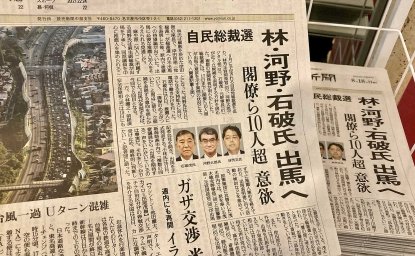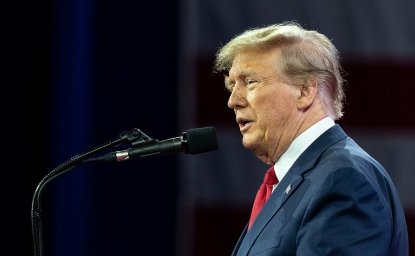Did Stalin Lure the United States into the Korean War? New Evidence on the Origins of the Korean War

The following telegram from Joseph Stalin to Czechoslovak President Klement Gottwald on 27 August 1950 in which the Soviet leader explained his decision-making in the preceding months raises new questions about the origins of the Korean War. Did Stalin purposefully seek to entangle the United States in a military conflict on the Korean Peninsula? Did Stalin expect an intervention by the Chinese communists from virtually the beginning of the conflict? First published in the original Russian in Novaya I Noveishaya Istoriia in 2005,1 two experts, Beijing University Professor Donggil Kim and University of Georgia Professor William Stueck, provide an initial assessment of this potentially significant new finding.
Kim argues that the document suggests that Stalin gave Kim Il Sung permission to attack South Korea on 25 June 1950 not because he felt the US would not get involved, but precisely because he wanted the US to become entangled in a limited conflict in Asia. Other scholars, by contrast, have emphasized that Stalin secretly approved Kim Il Sung`s plan to attack during the North Korean leader's secret trip to Moscow in April 1950 – only after receiving his assurances that South Korea could be overwhelmed so quickly, in a matter of a few weeks, that Washington would be unable to rescue it.2 From the very beginning he envisioned a conflict involving not just the North Koreans, but also the newly established People's Republic of China. Doing so, Kim argues, would allow the Soviet Union to concentrate its energies on consolidating its European empire and forestalling the outbreak of a third world war. Kim bases his findings, which will be published in an NKIDP Working Paper later this year, on this and additional documents that have recently become available from the collection of the late Russian diplomat and historian Andrei Ledovskii as well as from Russian and Chinese archives.
William Stueck, author of The Korean War: An International History (Princeton, 1997), and Rethinking the Korean War: A New Diplomatic and Strategic History (Princeton, 2004), argues by contrast that the document shows Stalin reassuring Gottwald—a nervous ally—about the international situation, and, implicitly, his own infallible leadership. In the document, Stalin claims that events in Korea had unfolded according to his wishes. Stueck argues that UN intervention in Korea and the corresponding US military buildup in Europe were surely not the results for which Stalin had hoped. Though Stalin may have seen some promising possibilities in the course of international events, this is a far cry from saying that events had gone largely as he had anticipated or desired.
Commentary by Donggil Kim (Beijing University)
Written just two months after the outbreak of the Korean War, the 27 August letter from Stalin to Czechoslovak President Klement Gottwald reveals much about Stalin's goals in the Korean War and also sheds some light on the origins of the Korean War. The letter describes the reasoning behind Stalin's decision to withdraw from the United Nations Security Council (UNSC) in January 1950, as well as the rationale for the Soviet absence from the UNSC in July 1950, when it discussed the Korean issue. At the same time, the document implies that Stalin intended to take advantage of a Chinese intervention in the Korean War to swing the global balance of power in the Soviet Union's favor.
Following the North Korean invasion on 25 June 1950, the United States petitioned for UNSC intervention in the conflict. Approval was given for this first deployment of a UN force, widely considered a diplomatic victory for the Western powers. Eastern European leaders questioned the Soviet abstention and failure to exercise its veto. In a remarkable act of criticizing the Vozhd's actions, Gottwald sent Stalin a letter asking why the Soviet Union had missed the critical UNSC meeting. The document contains Stalin's response to Gottwald's questions.
Stalin's reply indicates that:
1)Stalin not only predicted but actually desired US intervention in the Korean War. In his letter, Stalin clearly stated that one of his goals in boycotting the UNSC was "to give the American government a free hand and give it an opportunity to commit more foolishness using a majority in the Security Council so that public opinion can see the true face of the American government." Stalin hoped for the United States to become entangled in military conflict in Korea, and expected that UN sanctions would better facilitate United States entry into the Korean War. Therefore, Stalin's decision to abstain effectively guaranteed that the UNSC would authorize intervention.
2)Stalin viewed the Korean War positively, explaining to Gottwald with satisfaction: "it is clear that the United States of America is presently distracted from Europe in the Far East. Does it not give us an advantage in the global balance of power? It undoubtedly does." This not only confirms the fact that Europe was the main priority in the Soviet Union's international strategy, but also that the Korean War was seen as an opportunity for the Soviet Union and the socialist camp to strengthen socialism in Europe while diverting American interests and resources from that continent.
3)Even though at the time of Stalin's writing this letter the US Air Force had already established air supremacy over the North Koreans, overall North Korean forces still had superiority over allied forces. By early August North Korean forces had nearly run UN forces off of the Peninsula. Yet even during this early stage of the Korean War, Stalin apparently had strong hopes for China's intervention in Korea. Stalin commented to Gottwald what he believed the outcome of the Korean War would be if China was "[pulled]…into the struggle for the freedom of Korea." It seems that Stalin's aim in the Korean War depended upon Chinese intervention, believing that Chinese intervention would not only tie down the United States in conflicts in Asia, but also weaken the United States' overall stature and influence. Therefore, from Stalin's perspective, it seems, China's intervention was inevitable. This finding should strengthen arguments that Chinese intervention was a precondition for Stalin's approval of the Korean War. This document also leads us to conclude that one of Stalin's major goals in the Korean War was to lead the US and China into military conflict, thereby enhancing the deterioration of Sino-US relations, precluding any potential Sino-US rapprochement in the near future, and reinforcing China's dependence on the USSR.
4)Stalin believed in the inevitability of a third world war. The Soviet Union, unable to compete economically with US measures in Europe such as the Marshall Plan, the Berlin blockade and the establishment of NATO, desperately needed time to strengthen the socialist camp to prepare for a third world war. This question was foremost in Stalin's grand strategy. As shown in the document, the Korean War offered Stalin a solution. Stalin stressed that a United States exhausted from the Chinese intervention in the Korean War "would be incapable of a third world war in the near future. Therefore, a third world war would be postponed for an indeterminate period." Unquestionably, postponement of the third world war was a clear strategic advantage which the Soviet Union and the socialist camp obtained from the Korean War.
It could be said that this document is little more than an ex post facto attempt to justify a reckless action. Yet, as noted, at the time the document was composed, the North Koreans still enjoyed tactical superiority and had South Korean and United Nations troops contained within the "Busan [Pusan] Perimeter," giving Stalin little or no need to justify his actions.
In conclusion, this document not only explains the 1950 Soviet absence from the UNSC, but also reveals much about Stalin's view of the Korean War in the context of his grand strategy.
I would like to express my deepest gratitude to the Academy of Korean Studies and also to the late Andrei Ledovskii who co-discovered this document. The preceding analysis is based on a 2005 discussion we had on this document in Moscow.
Commentary by William Stueck (University of Georgia)
While Stalin composed this fascinating document at a time when North Korea held a tactical advantage over UN forces and was about to launch a new offensive aimed at driving them off the peninsula, it is difficult to believe that the Soviet ruler was as optimistic about international conditions as he claimed. In his discussions with Kim Il Sung the previous April, after all, he had indicated that the United States was not likely to intervene militarily to resist a North Korean attack. He recognized, to be sure, that there was a risk of such a response and he saw the Chinese as a counterweight in such an event. Yet his emphasis to Kim on the need for a quick victory over South Korea indicates that he preferred no US military intervention.
Not only did the United States respond militarily and prevent a quick North Korean victory; it took advantage of the Soviet boycott of the UN Security Council to push resolutions of support through that body. Why the Soviet Union did not return to the Security Council to prevent this remains uncertain. Stalin may have feared such action would increase the danger of a direct military confrontation with the United States; or, given US Secretary of State Dean Acheson's claim in his speech of January 12, 1950 that, if attacked, nations outside the US defense perimeter in the Pacific could expect aid from the United Nations, Stalin may have wanted to demonstrate that the international organization was toothless even without a Soviet presence. What is clear is that the decision not to return to the Security Council in late June was Stalin's decision alone, against the advice of his top aides. That fact made his later defense of the move all the more necessary, especially after his decision to reverse himself by ordering the return of the Soviet delegate to the Security Council in August.
In approving the North Korean attack in the spring, Stalin probably anticipated some response from the United States in the western Pacific, such as action to protect Taiwan, to bolster the French in Indochina, and/or to reinforce the US position in Japan. He also probably saw such action as advantageous, as it would divert attention and resources from the European theater and further alienate China from the West. By late August, however, the United States had not only done all of those things and intervened in Korea, it also had begun a general military buildup and commenced a campaign to persuade its NATO allies to do the same. Although Washington did not put German rearmament on the table until September, Stalin certainly recognized by 27 August that that option was in the air. He also knew that preventive war against the Soviet Union was being discussed in some high circles within the American government.
Stalin was by no means in a panic when he wrote to Gottwald. Surely he saw some promising possibilities in the course of international events. That is a far cry, though, from saying that events had gone largely as he had anticipated or had desired. His message to Gottwald needs to be seen less as an accurate rendering of past calculations or of Stalin's current state of mind than as an effort to reassure a nervous ally of the ineffable wisdom of Soviet leadership.
Document
Source: Russian State Archive of Socio-Political History (RGASPI), fond 558, opis 11, delo 62, listy 71-72. Published in: Andrei Ledovskii, "Stalin, Mao Tsedunh I Koreiskaia Voina 1950-1953 godov," Novaia I Noveishaia Istoriia, No. 5 (September-October 2005), 79-113. Translated for NKIDP by Gary Goldberg.
Top Secret
Prague, Soviet Ambassador
Pass Gottwald the following message orally. Put it in writing if he so requests.
"We view the issue of the Soviet Union's withdrawal from the Security Council on 27 June and the events which unfolded afterwards somewhat differently from Comrade Gottwald.
We left the Security Council for four reasons: first, to demonstrate solidarity of the Soviet Union with the new China.
Second, to underscore the foolishness and idiocy of the United States policy of recognizing the Guomindang puppet in the Security Council as the representative of China and not wanting to admit the genuine representative of China to the Security Council; third, to render decisions of the Security Council illegitimate by virtue of the absence of representatives of two great powers; fourth, to give the American government a free hand and give it an opportunity to commit more foolishness using a majority in the Security Council so that public opinion can see the true face of the American government.
I believe that we have achieved all of these goals.
Following our withdrawal from the Security Council, America became entangled in a military intervention in Korea and is now squandering its military prestige and moral authority. Few honest people can now doubt that America is now acting as an aggressor and tyrant in Korea and that it is not as militarily powerful as it claims to be. In addition, it is clear that the United States of America is presently distracted from Europe in the Far East. Does it not give us an advantage in the global balance of power? It undoubtedly does.
Let us suppose that American government continues to be tied down in the Far East and also pulls China into the struggle for the freedom of Korea and its own independence. What might come of this?
First, America, just like any other country, cannot cope with China, a country with such large armed forces at the ready. It follows that America would overextend itself in this struggle. Second, having overextended itself in this matter, America would be incapable of a third world war in the near future. Therefore, a third world war would be postponed for an indeterminate period, which would provide the time necessary to strengthen socialism in Europe, not to mention that the struggle between America and China would revolutionize the entire Far East. Does all this not give us an advantage from the perspective of the global balance of power? It unquestionably does.
As you can see, the question of whether or not the Soviet Union participates in the Security Council is not as simple as it might appear at first glance.
By virtue of all this, we cannot say that "the democratic camp has no need to leave the Security Council." Whether we leave or stay depends on the circumstances. We might leave the Security Council again and come back once again, depending on the international situation.
One might ask why we have now returned to the Security Council. We have returned to continue exposing the aggressive policy of the American government and to prevent it from using the flag of the Security Council as a smokescreen for its aggression. Now that America has become aggressively involved in Korea, it will be very easy to achieve this goal while in the Security Council. I think that this is clear and needs no further explanation.
FILIPPOV [Stalin]
27 August 1950
Footnotes:
1)Ledovskii, Andrei, "Stalin, Mao Tsedunh I koreiskaia voina 1950-1953 godov," Novaya I noveishaya istoriia, No. 5 (September-October 2005), 79-113.
2)See for example: Bajanov, Evgueni, "Assessing the Politics of the Korean War, 1949-1951," Cold War International History Project Bulletin, No. 6/7 (Winter 1995/1996): 54; Weathersby, Kathryn, "New Russian Documents on the Korean War" Cold War International History Project Bulletin, No. 6/7 (Winter 1995/1996): 30-40; Weathersby, Kathryn, "Soviet Aims in Korea and the Origins of the Korean War, 1945-50: New Evidence from the Russian Archives," Working Paper No. 8, Cold War International History Project, (November 1993).
The Commentators:
Donggil Kim is associate professor at the Institute of Modern Chinese History, Chinese Academy of Social Sciences in Beijing, and co-author of Sino-Soviet Relations (1931-1945) (CCP History Publishing House, 2008). He has published numerous articles in the Chinese press on Sino-Soviet and Sino-North Korean relations.
William Stueck Jr. is distinguished research professor of History at the University of Georgia, and an authority on U.S. diplomatic history, particularly American-Asian relations. Dr. Stueck is the author and editor of many books, including Rethinking the Korean War: A New Diplomatic and Strategic History.
Authors
Associate Professor, Institute of Modern History, Chinese Academy of Social Sciences; Vice Director, Center for Korean Peninsula Studies, Peking University

North Korea International Documentation Project
The North Korea International Documentation Project serves as an informational clearinghouse on North Korea for the scholarly and policymaking communities, disseminating documents on the DPRK from its former communist allies that provide valuable insight into the actions and nature of the North Korean state. Read more

Explore More
Browse Insights & Analysis
Navigating the New Cold War: US-China Relations Post-Election

China-US Relations: Challenges and Opportunities for the New Administration and Congress

